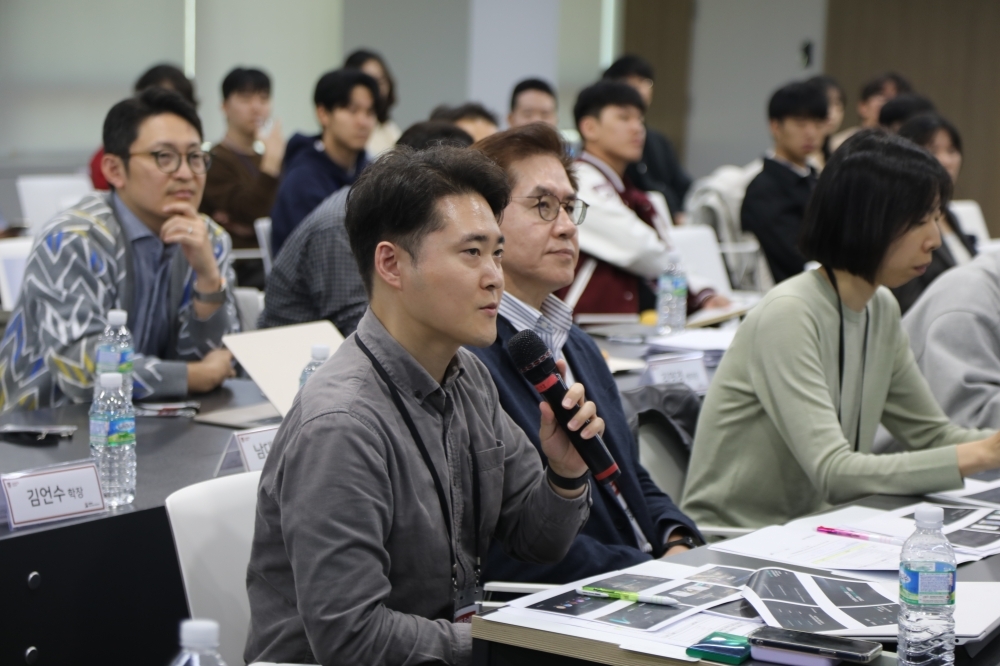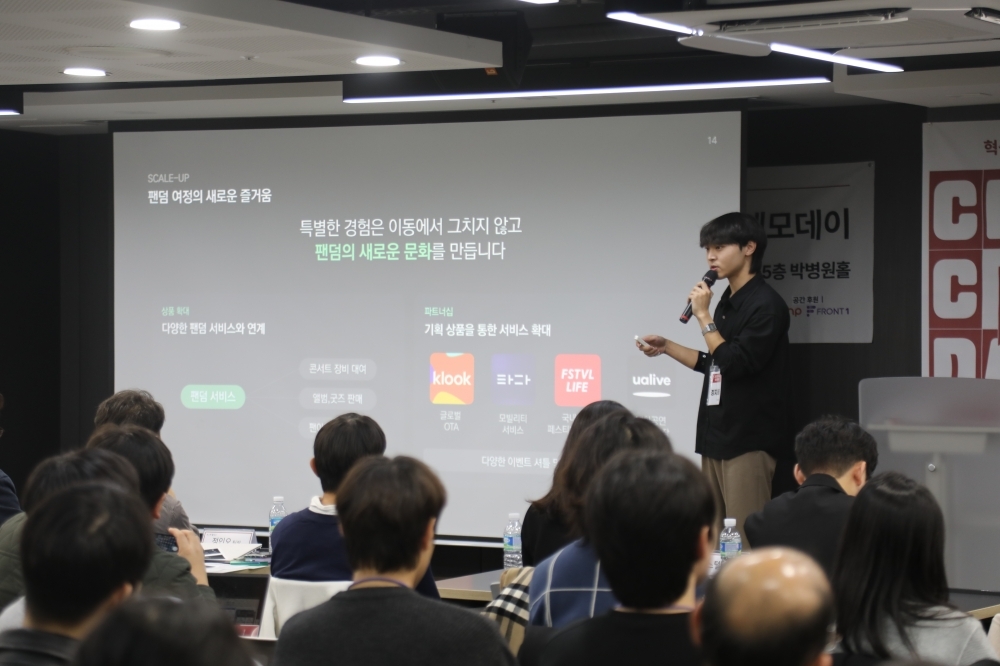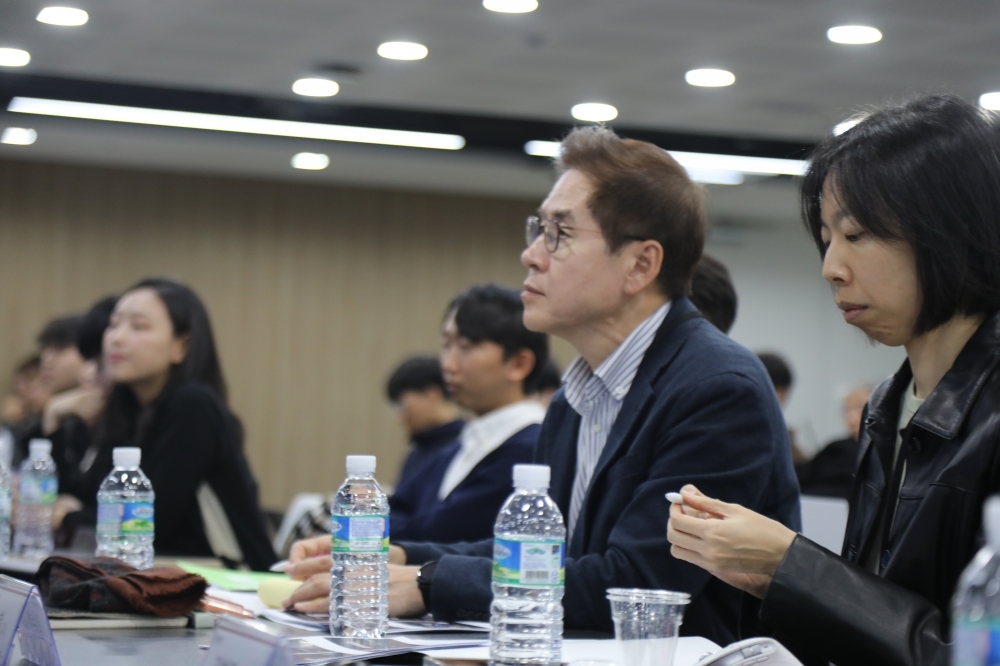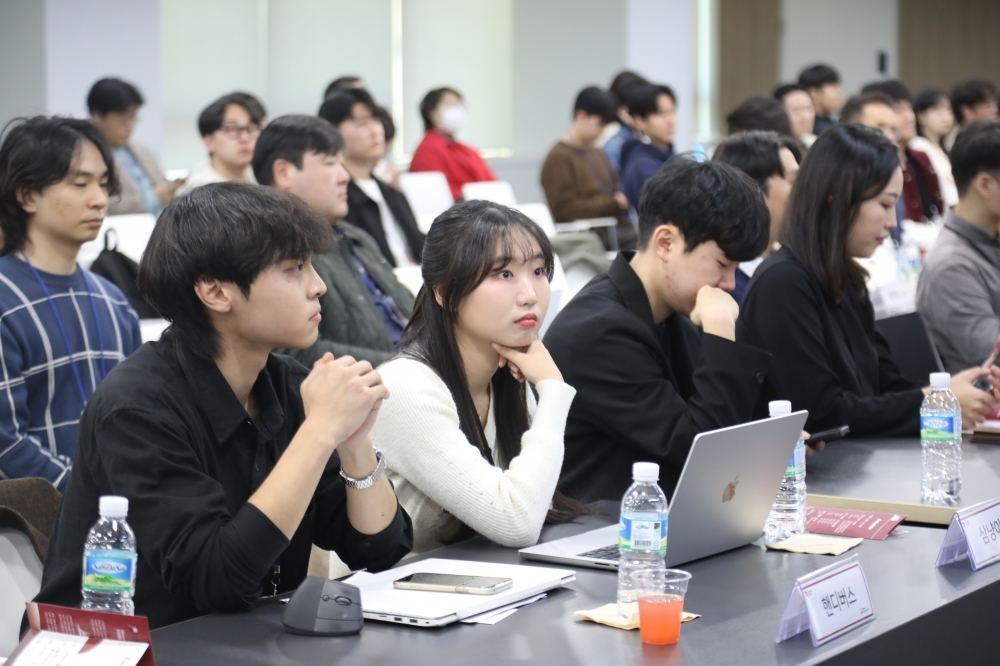News
KUBS News
“2025 Fall CHOO CHOO DAY” Held… A Stage of Innovation for Young Entrepreneurs’ Innovation
2025.11.26 Views 1114 국제실
“2025 Fall CHOO CHOO DAY” Held… A Stage of Innovation for Young Entrepreneurs’ Innovation
On November 7, “2025 Fall CHOO CHOO DAY (Korea University Student Start-up Demo Day),” hosted by the Korea University Business School, was held at D.CAMP Mapo in Mapo-gu, Seoul. Under the theme “Open the Window of Innovation,” the event featured five start-up teams that had completed Korea University’s start-up incubation program, providing them with a platform to share their achievements and visions with current students and industry professionals.
In his opening remarks, Youngkyung Kim, Director of the Startup Station’s Iljin Center for Startup Incubation, stated, “Recently, SK Hynix and Samsung Electronics have been leading the global market by supplying HBM semiconductors, the core components of AI,” and emphasized, “Now that AI has become foundational infrastructure—as essential as water and air—this is the ideal moment for young entrepreneurs to develop innovative services.”

Welcoming the participants, Eonsoo Kim, Dean of the Korea University Business School, remarked, “Just like the name ‘CHOO CHOO,’ this event symbolizes a strong departure toward new paths,” expressing his hope that “today’s stage will become the starting point where founders’ ideas connect to investment and collaboration.”
Serving on the Q&A panel were Henry Chung, CEO of KAIST Venture Investment Holdings; Seunghyun Kim, Director at Shinhan Venture Investment; Ino Jung, Team Leader at POSTECH Holdings; Hagyeong Kim, CEO of ZD Ventures; and Na Yeon Kim, Associate at BonAngels Venture Partners. The panelists thoroughly assessed each team’s strategies and execution plans, offering practical and grounded advice.
During the open-mic session, Sangil Bae, CEO of SPACEJUMP, took the stage as a guest speaker and advised, “Even if you fail, take actions that allow you to measure outcomes,” adding, “You need the courage to identify your top priority and boldly let go of the rest.”

During the main startup presentation session, five teams presented their work: ▲HandyBus, a fandom mobility platform; ▲Samnyangeez, an AI pet simulation game; ▲Gaon, an AI audio correction solution; ▲StellUp (Hangleling), a business Korean conversation service for foreigners; and ▲PRAP (Tarte AI), an AI-based STO (fractional investment) platform.
During the Q&A session, Na-yeon Kim asked, “Samnyangeez’s monthly active users (MAU) are currently around 350, which is not very high. Is this because content expansion is still in progress?” In response, CEO Sojung Choi said, “Although the service is not yet fully complete, users continue to stay because they form emotional bonds with their characters. This gives us confidence in the platform’s future growth potential.”
Next, Director Seunghyun Kim asked whether creators or indie musicians have a need to invest in improving audio quality in the same way professional musicians do. Gaon’s CEO, Jae-eun Noh, explained, “Professional musicians invest significant time and money to achieve the best quality, but creators prioritize quick uploads for monetization, so they prefer solutions that are easy to use and applicable even in live settings.”


This “2025 Fall CHOO CHOO DAY” was more than just a presentation event—it demonstrated that universities are increasingly functioning as practical platforms within the youth start-up ecosystem. The event provided student start-up teams with a valuable on-site opportunity to meet directly with investors and industry professionals, engage in networking, and explore ways to translate their ideas into real business opportunities.
For the students, the greatest takeaway was experiencing a full learning cycle of “idea → presentation → feedback → execution.” Refining their service models while preparing for the presentation, strengthening their strategies through direct feedback from the panel, and building connections with industry professionals during post-event networking constituted a form of hands-on learning that went beyond traditional education. In addition, the booth exhibitions and networking sessions held before and after the presentations enabled meaningful interactions with fellow founders, investors, and industry leaders, significantly expanding the students’ presence and roles within the start-up ecosystem.
Korea University plans to continue strengthening industry–academia cooperation and to further its efforts in fostering entrepreneurial talent so that innovative start-ups can continue to grow.


